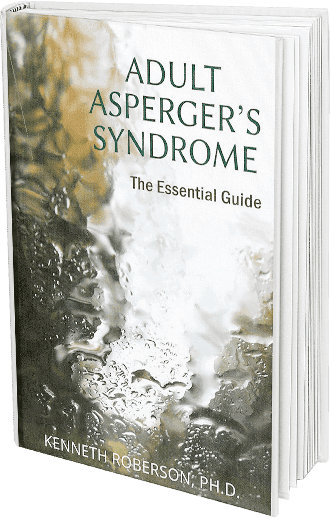
All too often, spouses and partners of adults with Autism Spectrum Disorder are met with puzzled looks, bewilderment, or even skepticism when describing their relationships. These descriptions include rigidity, misinterpretation of intentions, difficulty anticipating or appreciating the non-ASD partner’s feelings, emotional inaccessibility, trouble empathizing, and an inability to engage appropriately in social situations.
One wife described her husband as follows:
He’s incapable of seeing another person’s point of view. He doesn’t believe you are listening to him unless you agree with him. He refuses to make eye contact with anyone. He’s unable to make obvious inferences in a conversation, instead insisting that others are not being clear. He’s completely out of touch with his feelings and he acts like I’m an extension of him, that my job is to please him all the time. I feel an unbearable loneliness, which I don’t believe I deserve.
Surprisingly, when friends and acquaintances heard her say this, they acted as if she was describing someone they didn’t know.
Granted, they don’t live with him, yet how is it possible that the man she married and lives with appears so completely different from the man other people know?
The Cassandra Phenomenon
In the early 2000’s, the term Cassandra Phenomenon, sometimes referred to as the Cassandra syndrome, was coined to describe a group of symptoms that often occur in individuals who live with or know adults with Autism Spectrum Disorder. The term takes its name from Cassandra, a character in Greek mythology who was offered the gift of prophecy by Apollo in order to win her affection. After promising to be his lover in return, Cassandra later went back on her promise, and the enraged Apollo cast a curse on her that while she could see the future accurately no one would believe her prophecies.
The Cassandra phenomenon depicts a state of confusion, self-doubt, and inner turmoil that is all too familiar among neurotypical people who, when describing their experiences with an adult on the spectrum, are doubted, discounted, ignored, even rejected by friends, family members, and sometimes professionals who disbelieve their account.
Living with the Cassandra Phenomenon
The list of symptoms that sometimes occur with someone in a close relationship with an Autism Spectrum Disorder adult is too long to describe in this article, but several reactions are notable. One is the intense aloneness at having one’s experiences either disbelieved or outright denied. One husband observed:
My wife is highly intelligent and quite competent in her field. She has a remarkable memory, is able to converse in detail about a wide range of subjects, is outgoing and adventurous, and has a quirky but engaging sense of humor. People simply don’t comprehend the turmoil involved in living with Autism Spectrum Disorder symptoms. I am alone in my experience with nowhere to turn to for understanding.
Not surprisingly, confidence and self-esteem are frequent victims of living with an Autism Spectrum Disorder adult. The inability to have a satisfying emotional connection leaves neurotypical partners believing something is wrong with them. As one person stated:
There must be something wrong with me to want more and think I could have it. I’ve begun to expect that wanting to feel cared for, loved, even understood is unrealistic, that I’m asking for something I don’t deserve to have.
Other reactions include persistent feelings of sadness, depression and anxiety, insomnia, isolation, and anger. These usually aren’t temporary, unfortunately, but they can change with proper care and attention.
For more information and support regarding the Cassandra phenomenon, visit the Families of Adults Afflicted with Asperger’s Syndrome website. I am also available to consult about this problem.
You can read more about this topic here




